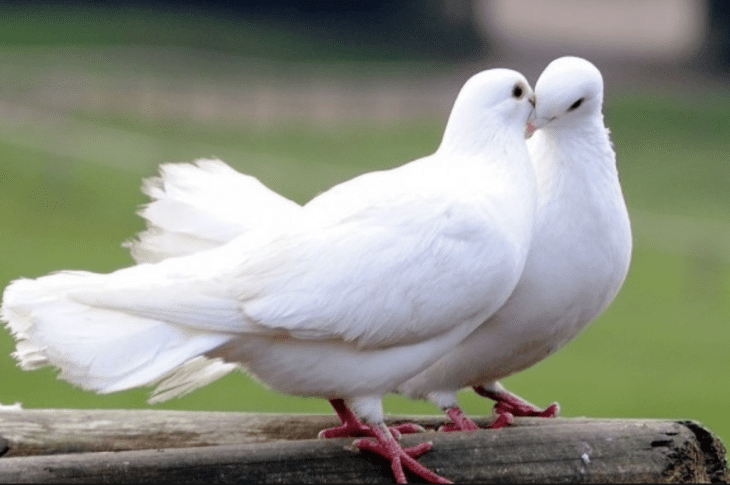
Doves – What Do They Eat
What Do Doves Eat
Pigeons and doves eat a variety of grains, seeds, greens, berries, fruits, and will occasionally eat insects, snails and earthworms in the wild.
General Information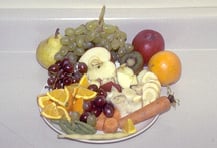
Our knowledge of bird nutrition is constantly evolving. This is due both to heightened awareness of the importance of nutrition and to increased research into birds different needs. As with all other animals, birds need a proper balance of carbohydrates, proteins, fat, vitamins, minerals and water. Different species of birds often require different foods.
Should I be concerned about what my doves eat?
Nutrition is commonly neglected with pet birds. You should discuss the nutrition of your pet pigeon or dove with your veterinarian! Too often owners assume they are feeding a proper diet to their pigeon or dove when in fact they are not! This is a common reason for many health problems. It is important to continually strive to improve your bird’s diet. This involves constantly educating yourself and a certain degree of common sense. It is not sufficient to feed a pigeon or dove just to maintain life; instead, your goal should be to help it thrive and flourish. Your bird’s health depends on how well it is fed.
What does my dove naturally eat?
Pigeons and doves eat a variety of grains, seeds, greens, berries, fruits, and will occasionally eat insects, snails and earthworms in the wild.
What should I feed them?
- A well balanced diet must be maintained at all times. Consult your veterinarian if encountering any problems with diet or the health of the bird.
Seeds
Formulated pigeon seed diets are available. A commercial diet contains mixed seeds and grains, vegetables and some are enriched with brewer’s yeast plus vitamins and minerals. Different diet formulations exist for performance birds, resting birds and breeding birds.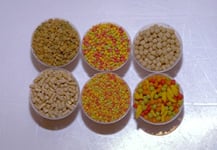
Pigeons are susceptible to calcium deficiency from eating only seeds. Seeds should only be 50% of a balanced diet, never the entire diet.
“Different diet formulations exist for performance birds, resting birds and breeding birds.”
Pelleted Diets
“Pellets should ideally represent approximately 50% of a pigeon’s diet.”
Pellets have been developed to meet all your bird’s nutritional needs. Hand raised babies are the easiest to start on a pelleted diet. Pellets are the ideal diet, therefore you are encouraged to slowly wean seed eating birds onto a pelleted diet. Pellets should ideally represent approximately 50% of a pigeon’s diet. There are many good brands of pelleted foods in the market place.
Fruits and Vegetables
Finely chopped vegetables and greens plus some fruit should be offered as part of the daily diet. Pale vegetables, with a high water composition (i.e. iceberg or head lettuce, celery) offer very little nutritional value. Avocado is reported to be potentially toxic.
Fruits and vegetables must be washed thoroughly to remove chemicals. Cut them into manageable pieces depending on the size of the bird. It is not necessary to take the skin off. Offer fruits and vegetables in a separate dish. If your bird appears to develop a particular fancy for one food item, reduce its volume or stop feeding it temporarily to promote the eating of other foods.
Treat your bird like a small child; offer a small piece of a variety of food items daily and never stop trying. A well balanced diet must be maintained at all times.
Water
Fresh clean water must be available at all times. Depending on the quality of your tap water, you might consider the use of bottled water. Dishes must be cleaned thoroughly every day with soap and water.
Will my bird have any different needs throughout its life?
Birds that are extremely young, stressed, injured, laying eggs or raising young may have certain special requirements. There are specially formulated pelleted foods available for birds with specific nutritional requirements. Consult your veterinarian regarding these situations.
Does my pigeon or dove need extra vitamins, minerals or amino acids?
Your veterinarian can help you assess your bird’s diet and its particular needs. One expert suggests that a pigeon eating 50% of its diet in the form of pelleted food may not need supplements. Specific vitamins or minerals may be more important at various times during a pigeon or dove’s life (e.g., calcium supplements during egg laying)). Calcium supplements are available if your pigeon is determined to be deficient.
“Mix these products in water or preferably apply directly onto moist food.”
Powdered supplements, such as Nekton® (by Nekton-Produkte), Quiko® or Prime® (by Hagen), are often regarded as more stable. Mix these products in water or preferably apply directly onto moist food. Placing these powders on seeds or dried foods is of little value since it will ultimately end up on the bottom of the food dish and not in the bird.
Does my Dove need gravel or grit?
Controversy exists over the need for gravel. It was believed that grit was necessary for the mechanical breakdown of food in the gizzard as an aid to digestion. Birds seem to do fine without grit. Most pigeons are offered a small amount of grit, crushed eggshell or oyster shell. Some birds will in fact have problems if grit is over eaten.
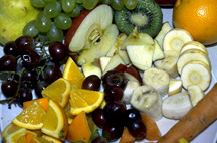 What pointers should I remember about feeding my Dove?
What pointers should I remember about feeding my Dove?
- Always monitor the amount of food eaten every day by each bird.
- Offer fresh water every day.
- Offer a variety of fresh foods every day.
- Offer fresh fruits and vegetables every day
- Clean all food and water dishes daily.
- No to a food item one day does not mean no forever – KEEP TRYING!
Other Items Your Doves Should Eat:
- Fruits like Apples, Bananas, Pears, Cherries, Peaches, Blueberries
- Vegetables like Bok Choy, Peppers, Lettuce, Cabbage, Carrots, Brussel Sprouts, Potato
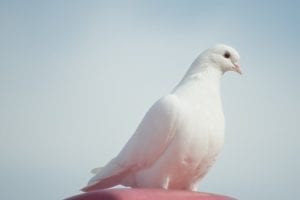
About Pigeon Patrol:
Pigeon Patrol Products & Services is the leading manufacturer and distributor of bird deterrent (control) products in Canada. Pigeon Patrol products have solved pest bird problems in industrial, commercial, and residential settings since 2000, by using safe and humane bird deterrents with only bird and animal friendly solutions. At Pigeon Patrol, we manufacture and offer a variety of bird deterrents, ranging from Ultra-flex Bird Spikes with UV protection, Bird Netting, 4-S Gel and the best Ultrasonic and audible sound devices on the market today.
Contact us at 1- 877– 4– NO-BIRD, (604) 585-9279 or visit our website at www.pigeonpatrol.ca
Bird Gone, Pigeon Gone, Seagull Gone, Pigeon problems, 1-877-4NO-BIRD, 4-S Gel, Bird Control, Pigeon Control, bird repellent,, sonic bird repellent, stainless steel , bird spikes Vancouver, Ultra Sonic Bird Control, Bird Netting, Canada bird deterrents, Pigeon Pests, B Gone Pigeon, Pigeon Patrol, pest controller, pest control operator, pest control technician, Pigeon Control Products, humane pigeon, pigeon deterrents, pigeon traps, Pigeon repellents, Sound & Laser Deterrents, wildlife control, raccoon, skunk, squirrel deterrent, De-Fence Spikes, Dragons Den, Canada bird spikes, Canada pigeon, pigeon control, pigeon patrol, pigeon. Kill pigeons, crow, starling, Pigeon Habitat, Pigeon identifications,
